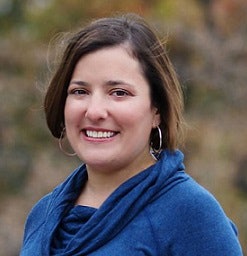While Wednesday marked the first day of classes at Clark Atlanta University, nearly 150 students were still waiting Tuesday for answers about their housing accommodations on campus.
 Dr. Sara Goldrick-Rab
Dr. Sara Goldrick-RabMany distraught students and their parents – some from out of state – called the housing issue “unacceptable,” as some said they had paid housing deposits for guaranteed lodging.
Clark Atlanta released a statement explaining that the school requires and provides guaranteed housing on campus for first- and second-year students who are financially enrolled. Upperclassmen who wanted to live on campus had to complete a two-step process – reserve housing with a deposit and complete the financial enrollment process by August 1.
“Communication went to all students beginning in May 2018 about the process and timelines, and the dates were extended several times,” CAU’s statement said. “Those who have not completed the financial enrollment process are being offered temporary housing while they complete the process.”
Even so, CAU students took to Twitter earlier this week to document the scenes of their peers waiting in long lines to meet with housing officials in the student center. Several students told local news outlets that they were financially enrolled and were supposed to have housing by Monday evening.
Other students on the social media site shared that housing shortfalls have occurred at other institutions such as Georgia State University. Last year, Georgia State had to temporarily place roughly 400 students at the Sheraton Atlanta.
Dr. Sara Goldrick-Rab, a professor of Higher Education Policy and Sociology at Temple University, said the housing shortage at Clark Atlanta highlights a larger point that colleges and universities often believe that housing is a “money-maker.”
“It often isn’t. It is hard to do housing well,” said Goldrick-Rab, whose research examines food and housing insecurities among college students. “Not everybody at a school always uses the housing. Schools are making estimates. They’re making projections … and they’re hoping that they get it right.”
Given that Clark Atlanta is a historically Black university (HBCU), their designation places the institution at the whims of a broader systemic challenge – that HBCUs are facing a “massive financial disadvantage” and are relying increasingly on revenue driven by tuition, Goldrick-Rab added. “This is a catch-22 for a school like this,” she said.
Goldrick-Rab also pointed out that African-American students are overrepresented in students who are housing insecure.
For students who must find off-campus living accommodations, their commute may cut into time they could have spent for other academic or extracurricular activities, Goldrick-Rab said. And if they are put in a situation where they have to sleep on a peer’s couch, for instance, it may affect their quality of sleep, she added.
However, the largest consequence Golrick-Rab sees is that the housing situation may affect CAU students and their parents’ trust in the institution, something already apparent in several student and parent interviews with local news outlets.
“They’ve got to believe that the institution has their back,” she said. “These are going to be folks who feel that that’s not true.”
Multi-strategy efforts to address the housing shortage at Clark Atlanta could include placing students in hotels, if possible, appealing to local universities to use extra bed spaces or utilizing programs like “Host Homes” that place homeless students in the homes of trained, adult volunteers, Goldrick-Rab suggested.
Additionally, CAU president Dr. Ronald A. Johnson should consider reaching out to alumni and others who care about the institution in order to support students, she added.
Tiffany Pennamon can be reached at [email protected]. You can follow her on Twitter @tiffanypennamon.


















